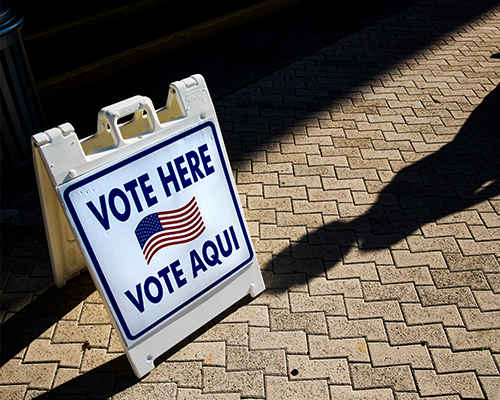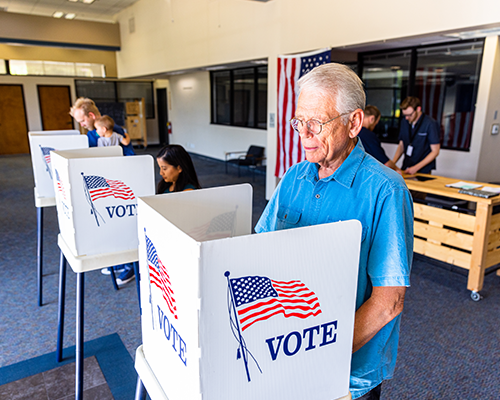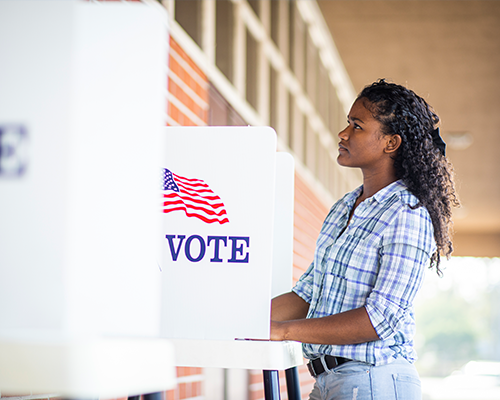
How does Michigan figure out
who can vote?







maintaining Accurate voter rolls
Only Michigan residents who are U.S. citizens over the age of 18 can vote.
Michigan law requires election officials to regularly update voter registration records. Elections offices work to identify and remove people from the voter rolls who have moved, died, or are otherwise ineligible to vote.
It is illegal for non-U.S. citizens to vote in Michigan. There are multiple safeguards to prevent non citizens from voting.
The majority of voter registrations occur during driver’s license transactions with the Michigan Secretary of State. The automatic voter registration process automatically prevents voter registration from occurring if the individual shows a non-U.S. citizen document, such as a green card, when getting a driver’s license.
During the automatic voter registration process, people are shown the requirements for voter registration, including U.S. citizenship, and given the opportunity to opt out.
After voters are registered they receive a voter information card in the mail. If they have been accidentally registered they can contact the clerk and cancel the registration.
People who are turning 18 during an election year may cast an early vote or absentee ballot before turning 18, so long as they will be 18 by Election Day.
Votes cast by people who vote early but then die before Election Day are not counted. If a voter votes early and dies before Election Day, Michigan has processes in place help ensure that their vote is not counted. These are the same regular checks and processes Michigan uses to ensure its voter rolls are generally accurate and up to date. Michigan law prohibits a dead person’s ballot from being counted.

Michigan’s election officials regularly update voter registration records, as is mandated by state and federal law. Election officials conduct frequent checks in the two weeks before an August or November election to identify and remove from the voter rolls Michiganders that have moved, died, or have become otherwise ineligible to vote.
The state also makes use of data from the Electronic Registration Information Center (“ERIC”). ERIC sends member states frequent reports based on voter registration and vehicle registration data, as well as federal change of address and death data. These comprehensive reports help Michigan remove anyone who has become ineligible to vote.
State law details the processes election officials follow to keep the voter rolls accurate. If a voter casts an absentee ballot and then dies, the local clerk cancels any absentee ballots that have been submitted and not yet tabulated before Election Day.
Non-citizens are similarly not allowed to vote in Michigan. Michigan uses thorough processes to ensure that only U.S. citizens are registered.
All of these checks are used to maintain Michigan’s “Qualified Voter File” (“QVF”)– the up-to-date statewide voter roll file that all state and local elections offices use.
Read More: Who is an eligible voter according to the MI state constitution?